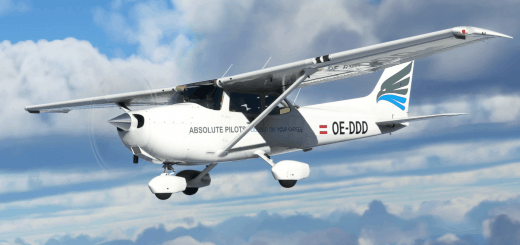Spitfire Mk.IX MJ730 “The CO’s Query” (N730MJ) v1.0
This mod is for the Third Party Aircraft Spitfire Mk IXc by FlyingIron Simulations. You can purchase this plane from https://flyingironsimulations.com/products/spitfire-l-f-mk-ixc-for-microsoft-flight-simulator
This repaint, made for the FlyingIron Simulations Spitfire Mk.IXc, depicts the restored Spitfire Mk.IX MJ730 as it appears today. Owned by Jerry Yagen/Military Aviation Museum, the aircraft is registered as N730MJ and based at the Virginia Beach Airport (42VA), Virginia.
This Spitfire Mk.IX, given the RAF serial number MJ730, was originally completed at the Vickers-Supermarine Castle Bromwich Aeroplane Factory, located near Birmingham, UK. The factory’s chief test pilot, the legendary Alex Henshaw, performed the first flight with the aircraft on December 10, 1943. Within a couple weeks it was disassembled and shipped to Casablanca, in North Africa. There it joined No 417 (RCAF) Squadron and flew missions escorting B-25 Mitchell bombers of the USAAF as part of the Italian campaign. It also took part in supporting the Allied landings at Anzio. On May 9, 1944, it was reassigned to RAF No 154 Squadron and given the fuselage code HT-W. With 154 Sqdn. the aircraft operated from the island of Corsica, flying 95 bomber escort missions for the American forces over northern Italy and in support of Operation Dragoon, the invasion of southern France in July 1944. It was during this time that MJ730 was captured on moving film by famed director William Wyler, while shooting footage for the documentary Thunderbolt. (MJ730 is believed to be the only warbird flying today that was captured on moving film during World War Two.)
On October 9, 1944, MJ730 was reassigned again, this time to RAF No 32 Sqdn. at Kalamaki, Greece (a former Luftwaffe airfield). There it became the personal mount of Squadron Leader George Silvester, DFC. Before its individual code had been assigned, he jokingly said to his ground crew that there was “a bit of a question mark” over which identity letter to give his personal Spitfire, because as Squadron Leader, he belonged to neither ‘A’ Flight or ‘B’ Flight. The ground crew, as a lark, placed a large “question mark” where the individual code letter would have normally appeared. Sqn. Ldr. Silvester was amused by the gesture and MJ730 was referred to as “The CO’s Query”. This tradition continued into the 1950s with 32 Squadron’s future commanding officers continuing to also display the “?” on their Vampire jets.
At war’s end, MJ730 was flown as part of RAF No 249 Sqdn., based in Yugoslavia. After the war it was ferried to RAF Brindisi in Italy, where it was stored for nearly a year before it was sold to the newly reformed Italian Air Force. Following a major overhaul, it was based at Centocelle Airport on the outskirts of Rome. Then in 1951, it was among a number of Spitfires that were sold by the Italian government to Israel. Assigned the number ’66’ with the Israeli Air Force, MJ730 served with an Operational Training Unit at Ramat David airport. In June 1956, it was ultimately retired and was moved to a children’s playground in Kabri, near the border of Lebanon.
In 1978, the aircraft, in poor condition, was recovered from the playground by noted warbird owner/restorer Robs Lamplough and transported back to England. A restoration to airworthy was begun, but it was then sold in 1986 to Fred Smith, founder and President of Federal Express. The restoration was completed in 1988, but MJ730 was immediately offered for sale. It was purchased by David Pennell in Birmingham, England, and the aircraft spent the next ten years in the Midlands area, flown at many charity events and memorial functions.
In 1998, Jerry Yagen acquired the Spitfire. Following an overhaul of the Merlin engine while it was still in England, it arrived at the Fighter Factory facilities in Suffolk, Virginia in early 2000 and has been flying in the US ever since. The aircraft, along with the majority of Jerry Yagen’s extensive collection of flying warbirds, is now based at and operated from Virginia Beach, Virginia, where Yagen has built the Military Aviation Museum.
~ Repaint Details ~
– Although based on the product paintkit, the textures have been considerably modified and improved. Customized complete maps (PBR) and normal maps (3D detail) have been made.
– The positioning of the rivets and panel lines on the left elevator has been fixed (they’re not positioned correctly in the product paint schemes).
– The inaccurate access panels on the engine cowlings have been removed and the actual access panels, as found on MJ730, have been added, as well as a couple of panel lines missing in the product paint schemes.
– The battery access panel has been added to the starboard rear fuselage, as well as the circular inspection panels on both sides of the rear fuselage. The electrical/radio socket access panel has been added to the port-side wing/fuselage fillets.
– The engine cowling fasteners have all been redone to match those on MJ730, and new fasteners, missing in the product paint schemes/paintkit, have been added.
– All colors, markings and stencils were specifically created to match the restored MJ730.
– Prop stencils have been added, front and back, as they are on the restored MJ730.
– Non-slip tape has been added to the inboard areas of the wings, just as there is on the restored aircraft.
– The textures for the main landing gear and tail gear, landing gear inner doors, wheels, tires, wheel wells, pitot tube and cockpit side door lever, have all been modified. There is now a uniform silver-painted finish to the landing gear, inner landing gear doors and wheel wells.
– Modified “slipper tank” textures have been included, so that the paint color matches the same lower surface Medium Sea Grey as the aircraft.

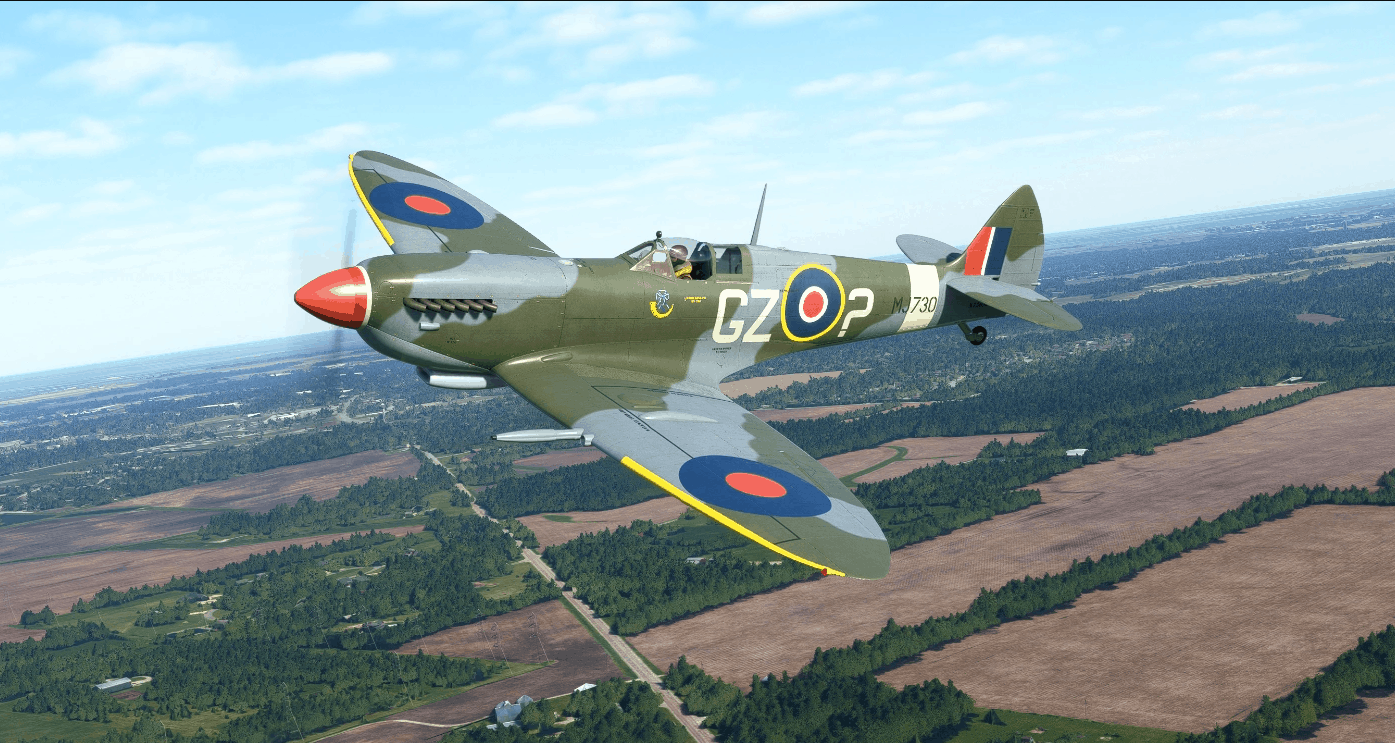
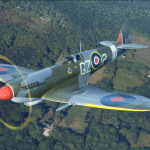
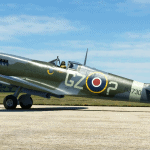
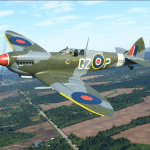

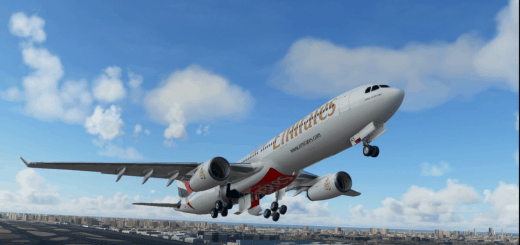
![Asobo-KingAir350-Canada-Fisheries [Version 1.10.7.0] v1.0](https://www.allflightmods.com/wp-content/uploads/2020/11/Asobo-KingAir350-Canada-Fisheries-Version-1.10.7.0-v1.0-2-520x245.jpg)
